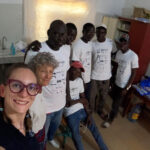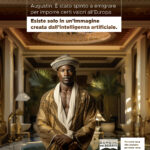The Third World War has already happened and shows no sign of ending. It’s just that the spotlight was elsewhere, on more important worlds and deaths. Dying in the Democratic Republic of Congo, the former Zaire of Mobutu Sese Seko, is not the same as dying elsewhere, where the statue of the unknown soldier glorifies the heroes and martyrs of freedom. Nothing of the sort for the estimated 10 million dead and 500,000 women raped along the way in Congo. The ‘geological scandal’ of the DRC, which possesses the best deposits of ‘rare’ earths for electronics and informatics, has only facilitated the prolongation of wars remotely controlled from the outside and paid for dearly within. Coalitions of various African countries and support in money, weapons, and logistics from Great Powers with interests on the ground have created a long, endless war over the years.
For this reason, like many others, Henri left one of the most unfortunately wealthy regions of his country, the Democratic Republic of Congo, at the age of 22 and has not returned since. He saw those fleeing from war-torn Rwanda massacred and, along the way, the birth and growth of armed groups hired by companies and foreign powers ‘hungry’ for mineral resources. Henri is in Niamey, twice the age he was when he left his homeland and not even recognized by the United Nations High Commissioner for Refugees. He has ceased to exist from a legal point of view. He is not a ‘refugee,’ not a ‘migrant,’ not ‘displaced,’ has no job, no family, no identity, and only clings to what he stubbornly calls a future. To get to Benin, where he stayed for 11 years with refugee status, he crossed the Central African Republic, Cameroon, and Nigeria. Eventually, the authorities, for political reasons, deemed his status no longer sustainable, and so Henri left for Ghana, hoping for better luck with the UNHCR based in Geneva, Switzerland.
He thus plans to take his destiny into his own hands to attempt to cross the Mediterranean Sea, which he watches with fear as others dare to challenge its mystery. So he leaves Ghana and, after a long journey, reaches Algeria, one of the shores of the Mediterranean. There, Henri is arrested, detained, and finally deported to the Niger border, and in 2019, he is taken in by the International Organization for Migration. Since Henri does not want to return to his war-torn region of origin, for humanitarian reasons, he is entrusted to the UNHCR. He spends another four years as an asylum seeker in a camp-village not far from Niamey called Hamdallay, only to see his asylum application finally rejected. The institution offers him a modest sum of money as a ‘settlement’ and Henri finds a room to rent in one of the new neighborhoods on the outskirts of the capital, Niamey 2000.
Henri’s life, in his vain search for a land of asylum due to the permanent war in his country, appears as one of the metaphors of our time. Both he, his country, and millions of people celebrate in the complicit and deafening silence of the world that matters, an endless exile. Henri lives in one of the future districts of Niamey because rents are cheaper in that area.


